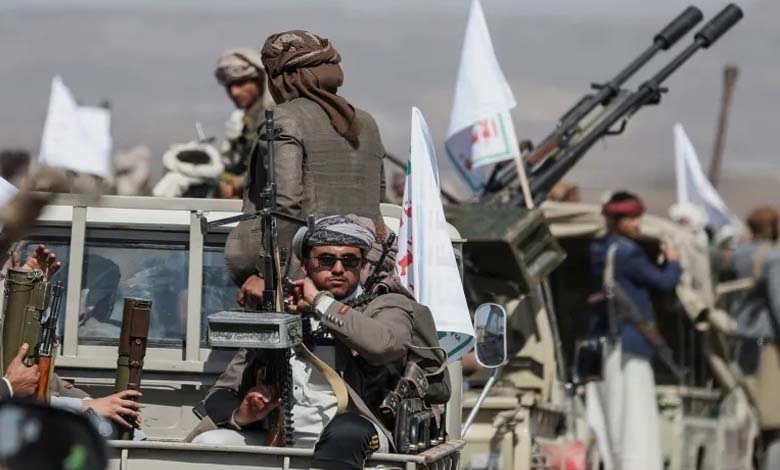Yemenis Are Looking Toward the Downfall of the Houthi Project Amid the War on Iran

Yemenis are increasingly hopeful for liberation from Houthi dominance as the conflict between Israel and Iran continues. With significant Iranian losses, support for the Houthis appears to be waning. Yemeni Information Minister Muammar Al‑Eryani recently signaled that “the coming days will bring decisive transformations and the dawn of a new Yemen.” He indicated that the Yemeni dossier is “on the brink of broad movement and profound change,” promising “surprises that will delight every Yemeni and free Arab.”
-
The Houthis Under Financial and Military Siege: Will Iran Come to Their Rescue?
-
The Muslim Brotherhood Crush the Last Line of Defense Against the Houthis… and Open a New Front Against Marib’s Tribes
Observers interpret his statement as the first official acknowledgment of imminent on‑the‑ground shifts—whether political or military—while international and regional pressure mounts to resolve the stalemate. Since seizing Sanaa in 2014, the Houthis have relied heavily on Iranian backing—including military, financial, energy, media, and political support. Yet, the recent Israeli strikes on Iran’s vital infrastructure may weaken Tehran’s ability to fund its proxies, potentially turning the Houthis from a strategic asset into a liability.
Many believe that the Israeli‑Iran conflict will directly impact the Houthis. Israeli strikes targeting Iranian refineries and strategic installations have deepened Tehran’s economic crisis under sanctions, posing serious challenges to maintaining the same level of support for regional allies.
-
Houthis’ Opening of a Vital Road Between Sanaa and Aden Reflects a Tactical Shift
-
Houthis Continue Their Crimes and Turn Yemen Into a Battleground for Iranian Conflicts
Iranian support facilitated the Houthis’ control of Sanaa and Yemeni state institutions in September 2014. Today, Yemenis see the current regional turmoil as a chance to end the Houthi’s destructive project—especially after the group threatened to target U.S. interests if Donald Trump launched a strike against Iran. The hashtag #نهايه_الحوثي (“the end of Houthis”) gained traction on social media, reflecting widespread sentiment: “The Houthis dominated the country, impoverished the people, and served their own interests,” users commented, labeling them “Iranian agents” responsible for Yemen’s suffering.
Some reports suggest the Houthis could endure without Iran, albeit with reduced influence. Their true danger lies not just in their risk‑taking behaviors but in their possession of advanced weaponry and technical know‑how. Now they face a choice: sacrifice their prominence to stay alive or act as front‑line defenders of Iran.
-
The ceasefire with the Houthis was not an American concession, but the result of Houthi setbacks
-
New Contacts Between the Muslim Brotherhood and the Houthis… Details
A Yemeni security expert supportive of the internationally recognized government told Yedioth Ahronoth that a proposed agreement between Trump and the Houthis thwarted a planned offensive. “Yemenis were deeply disappointed by the deal—it was a personal political victory for Trump,” the expert said. Another senior security official remarked, “We were deceived by the Americans.”
Maariv reported that Israel’s recent naval strike at Hodeida port served as a message of multi‑domain capability—air, maritime, intelligence, and potential ground operations. According to Haaretz, the Houthis have escalated their threats, prompting Israel to pursue a pre‑emptive deterrence strategy: targeted strikes on critical infrastructure—weapon depots, command centers, leaders, communication nodes, and economic sites that fund “terrorism.”
-
Houthis Hide Their Dead… Funerals Banned and Condolences Forbidden
-
Has Iran Abandoned the Houthis? Experts Respond
Finally, Yedioth Ahronoth highlights that the Houthis leverage identity narratives and propaganda to solidify internal legitimacy and expand regional influence—making them one of the most formidable adversaries in the so‑called “Axis of Resistance.”
-
The Demons’ Deal: Houthis Release Al-Qaeda Terrorists to Reinforce Their Frontlines
-
A Muslim Brotherhood military commander threatens to hand over military positions to the Houthis
-
American Airstrikes on Houthis Expose the Double Standard of Yemen’s Muslim Brotherhood
-
The Muslim Brotherhood and the Houthis… Playing Openly After “Under-the-Table” Alliances
-
Houthis Torture a Young Man to Death for Refusing to Join Their Training… Details












